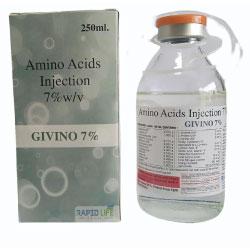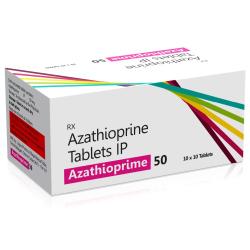Description
Anti-Thymocyte globulin (ATG) is a hyperimmune globulin preparation developed from the plasma of rabbits or horses that have been immunized with human thymocytes or T cells. This immunoglobulin G is used for renal allograft rejection and aplastic anemia (moderate to severe) in patients not suitable for bone marrow transplantation (BMT).
Limitations of Use: The usefulness of ATG has not been shown in patients with aplastic anemia who are suitable candidates for BMT or in patients with aplastic anemia secondary to neoplastic disease, storage disease, Fanconi’s syndrome, myelofibrosis, or in individuals known to have been exposed to myelotoxic agents or radiation.
Dosage and Side Effects
Renal Allograft Rejection: The recommended dose of ATG is 10 to 15 mg/kg daily intravenously for 14 days. Additional alternate-day therapy up to a total of 21 doses may be considered.
Aplastic Anemia (Moderate to Severe): The recommended dose of Antithymocyte Globulin is 10 to 20 mg/kg daily administered intravenously for 8-14 days. Additional alternate-day therapy up to a total of 21 doses may be considered.
The most common side effects of Antithymocyte Globulin (ATG) are pyrexia, rash, thrombocytopenia, chills, leukopenia, and arthralgia.
FAQ's
What is Antithymocyte Globulin (ATG)?
Antithymocyte globulin (ATG or ATGAM) is an antibody preparation derived from rabbits or horses hyperimmunized with human thymocytes, which is used for the prevention or treatment of acute cellular rejection following solid organ transplantation and as a therapy of acute aplastic anemia.
How is Antithymocyte Globulin (ATG) administered?
Thymoglobulin (ATG) is administered as an intravenous (IV, into a vein) infusion, typically in the hospital.
How do I store Antithymocyte Globulin (ATG)?
Store the vials in a refrigerator at 2-8°C (36-46°F). Avoid freezing it. Store in the original carton in order to protect it from the light.
How much does Antithymocyte Globulin (ATG) cost in India?
Antithymocyte Globulin (ATG) cost in India is very reasonable and can vary. To procure it legally, you can call us at (+91) 8130290915, TOLL-FREE: 1800-889-1064, Or Write us at info@indiangenericmedicines.com.
Where can I get Antithymocyte Globulin (ATG) at the best Price?
Order ATG at the best price today. We request you to Call/WhatsApp us at (+91) 8130290915 or dial our TOLL-FREE Number: 1800-889-1064 or Write us at info@indiangenericmedicines.com. We’re committed to providing you with the best Antithymocyte Globulin (ATG) price from India. That is why we’ll match the cost/price of any existing suppliers/distributors in the market who require a medical prescription.
Is the Antithymocyte Globulin (ATG) available in India?
Antithymocyte Globulin (ATG) is a (prescription medicine, doctor-prescribed medication, or health care professional-prescribed drug) pharmaceutical drug that can be legally dispensed against a medical prescription. ATG can be made available through the network of authorized distributors in India. (Delhi, Mumbai, Bangalore, Ahmedabad, Kolkata, Hyderabad, Chennai, Pune, etc.).
Can You Send the Antithymocyte Globulin (ATG) to Foreign Destinations?
Buy generic Antithymocyte Globulin (ATG) online at the best/lowest price from a leading supplier. Indian Generic Medicines can assist in the delivery of ATG; doctor-prescribed medication to Australia, Canada, the UK, Philippines, the USA, Saudi Arabia, Thailand, Kazakhstan, Uzbekistan, Zambia, Pakistan, Kuwait, Sri Lanka, China, South Africa, Hong kong, UAE, Turkey, Singapore, Afghanistan, Malaysia, Qatar, Japan, Nepal, and many other countries.
What is the procedure to buy ATG from Indian Generic Medicines?
Patients can fill out the order form or send mail to info@indiangenericmedicines.com. Patients can also send WhatsApp messages to +91 8130290915 or can dial the TOLL-FREE Number: 18008891064. We will reply ASAP with the details of the Antithymocyte Globulin (ATG) price and the procurement procedure.
Note:- The order will be confirmed only after the valid receipt of the prescription from the Physician.
Is it safe to buy Antithymocyte Globulin (ATG) online from India?
Yes, one can buy Antithymocyte Globulin (ATG) online from India-based Indian Generic Medicines if it is not (yet) registered or is unavailable in their respective country. We can help facilitate the supply/export of ATG through legal channels.






